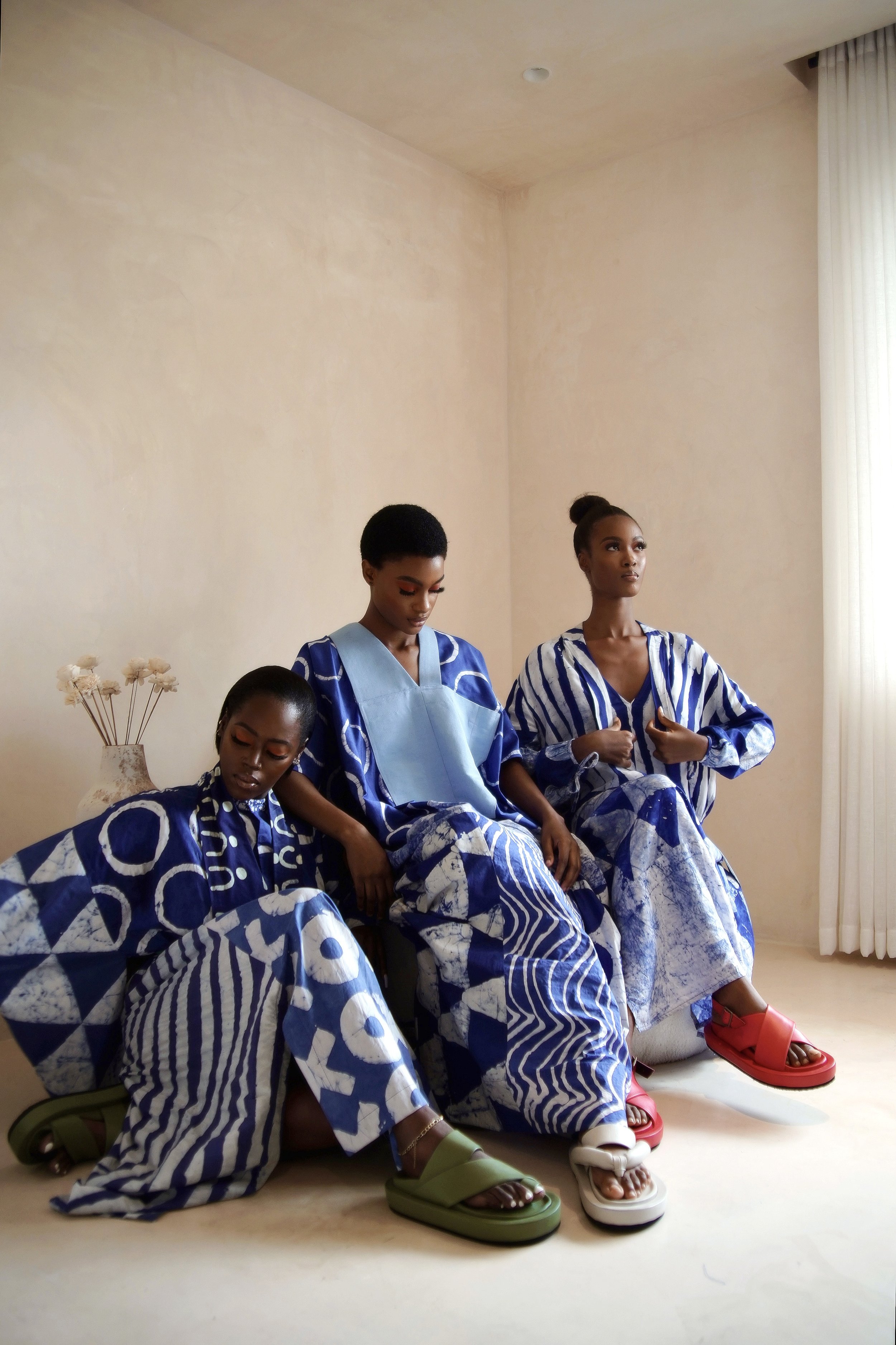A Strong Brand: Dye Lab from Lagos, Nigeria
A Strong Brand: Dye Lab from Lagos, Nigeria
'Sustainability' is a term that can no longer be ignored, especially in fashion. While European brands and businesses often struggle (or reluctantly attempt) to make their products more sustainable, sustainability is inherently woven into fashion made in Africa. Many garments are made from deadstock materials dumped from the West—essentially, discarded waste. Others use locally made fabrics, crafted through traditional artisanal techniques. Moreover, most African brands don’t produce clothing in large, unsellable batches but instead work on a made-to-order basis. Dye Lab is one such brand.
Dye Lab is renowned for both its striking signature prints and distinctive silhouettes. If you’ve seen Dye Lab’s clothing, you might recognize their printing technique—it’s the same method used for Batik and Adire, a popular Nigerian fabric. Its best-selling designs are modern reinterpretations of classic cultural garments like the agbada—flowy, oversized dresses beloved across West Africa. However, Dye Lab’s silhouettes go beyond traditional styles; they also offer blouses, culottes, jumpsuits, and crop tops, all brought to life through their signature prints.
Though the brand could be labelled as a sustainable brand, they don’t identify themselves as one. “It feels like the word ‘sustainable’ is often used for greenwashing,” says founder Rukky Ladoja. Rukky, the creative mind behind Dye Lab, launched the brand in 2020, during the pandemic. “I was inspired by the techniques and materials I had around me in Nigeria,” she explains. After closing down Grey, a brand she ran for 10 years from London, she realized the western model and being heavily dependent on external factors didn’t work for running a fashion business in Nigeria. She decided to explore local artisanal techniques and local production capacity. What can be created here, that is contemporary, where every single part of the value chain is local? She rediscovered Nigeria’s rich weaving and dyeing techniques—resources that were always present, without needing to look beyond her country. Zero waste is another core value for Dye Lab, though they don’t like to emphasize it. “Many of our silhouettes are made from straight fabric strips, minimizing waste,” Rukky explains. Rather than adhering to international standards, Dye Lab consciously integrates sustainability into its process, preferring to speak of ‘responsibility’ rather than sustainability. In Amsterdam, Ozzy, Dye Lab’s brand director, tells me how their popular ‘multi-colored’ items came about: “We had a lot of leftover materials and didn’t want to throw them away. So, we started laying them together like a patchwork—and suddenly, a new style emerged.”
With Dye Lab, Rukky wanted to put a contemporary spin on traditional clothing. “A lot of our traditional garments and fabrics are worn only on cultural occasions. I wanted to find a way to expand that, to have a modern interpretation on what is already familiar to us.” She explains that many traditional dyeing methods are at risk of disappearing due to low demand. By creating garments that embrace these techniques, she hopes to keep these crafts alive. “Textile is a language. Through our textiles, we [Nigerians] can keep our stories alive.”
For Dye Lab, creating garments from local fabrics with local artisans is more than just a cultural act—it’s also about economic growth. “Fashion in Africa is a business opportunity,” Rukky emphasizes. It generates jobs and contributes to a growing economy.
Dye Lab produces made-to-order pieces; when you place an order, the item is made specifically for you. Generally, it takes about 15 days before the order is shipped. “But when you place an order, we’ll inform you of the expected delivery time. If we already have the fabric, it’s faster. If it needs to be made from scratch—dyeing the materials and assembling the pieces—it takes about 15 days,” says Ozzy.
Instagram: https://www.instagram.com/dye_lab/
Shop: https://dyelab.ng/




